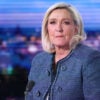Standing next to Russian President Dmitri Medvedev in November 2008, then-president of the European Union, Nicolas Sarkozy called for a temporary moratorium on the planned U.S. missile defense deployments in Poland and the Czech Republic as well as an EU-Russian summit to discuss European security arrangements. This summit will take place in Eastern Russia next Friday and Saturday.
When Russians talk about changing Europe’s security architecture, what they really mean is sidelining NATO. However, in the Obama Administration’s haste to reset relations with Russia, and its nonsensical enthusiasm for EU-integration, it has sent neither Moscow nor Brussels the message that NATO’s primacy is non-negotiable. In fact, it has seemingly gone out of its way to send precisely the opposite message, embracing an EU-only defense identity and craftily avoiding seeing through U.S. commitments on missile defense and NATO enlargement.
Russia’s cozying up to Brussels is a cynical ploy to divide the transatlantic alliance, using close allies such as Sarkozy and German Chancellor Angela Merkel to push a Russia-First agenda across the European Union and against American interests. Moscow’s recently unveiled National Security Strategy identified the United States and NATO as the major threats to global security and to its own military. Considering this context alone, the EU should not be negotiating with Russia on any upgrading of security relations.
The Daily Signal depends on the support of readers like you. Donate now
When the EU-Russia summit commences in Khabarovsk next Thursday, Moscow will sit at the table in violation of the EU-negotiated ceasefire to the Russian-Georgia conflict. Moscow has unilaterally recognized the sovereign Georgian territories of South Ossetia and Abkhazia, and has engaged in a massive military build-up in these areas, which it pledged specifically not to do when it signed the Sarkozy-led ceasefire in August 2008. On this basis too, it is unfathomable that the EU would consider engaging Moscow in a new security pact.
It is painfully obvious that Russia’s plans for this new European Security Treaty amount to seeking endorsement for its “Zone of Privileged Interests” policy. It is equally obvious that the EU lacks the political legitimacy and credibility to stand up to Russian aggression in these sorts of negotiations. It failed to enforce its own ceasefire in Georgia and it has failed miserably on other big security questions such as Afghanistan. The EU works best as a free trading entity, driven by the free movement of peoples, goods and services. It would do better to concentrate on fulfilling its economic potential rather than foray into areas where it will create lasting damage to the transatlantic security alliance. The Obama Administration must wake up to the realities of the European Union, as opposed to its hopelessly idealistic view of ever-closer-union.




























